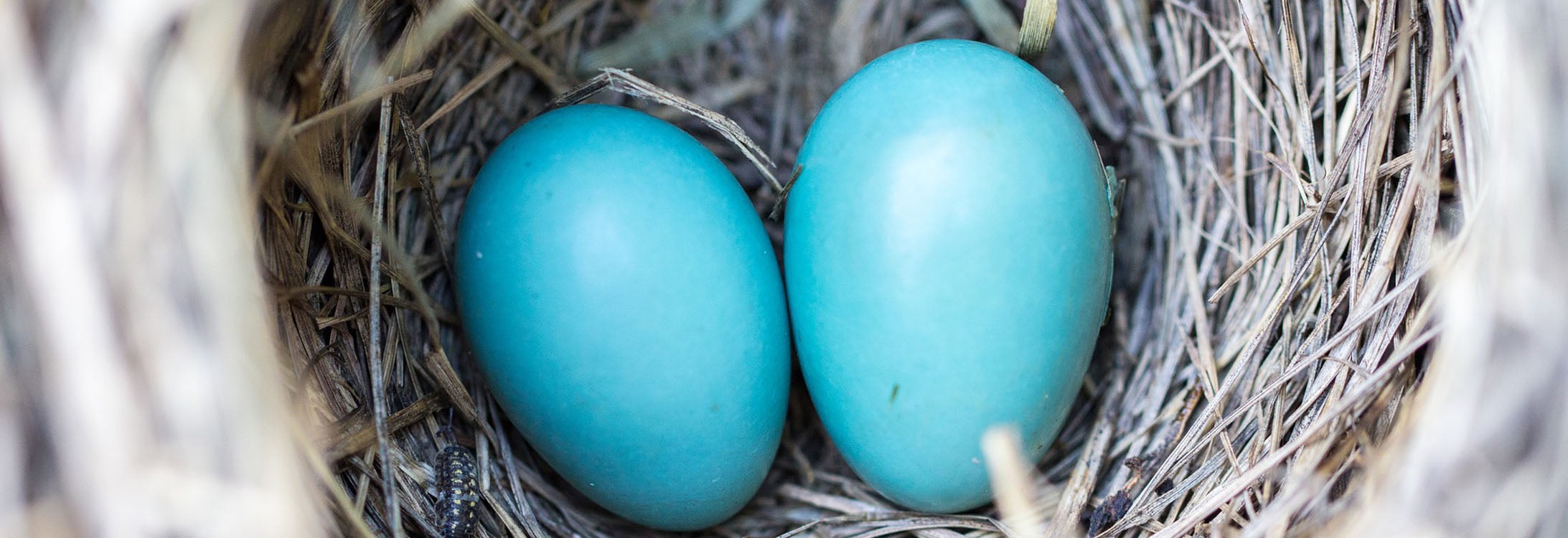Student Profile: Amber Chavis

Undergraduate researcher Amber Chavis is trying to answer the question “Why so birds lay their eggs at certain times during the day?”
Major: Biology
Mentor: Dr. Susan McRae
Department: Biology
Project Title: “The evolution of laying times in Eastern Bluebirds”
My project’s focus is to understand the ecological and social factors underlying variation in bird egg laying times. I’m attempting to answer the question as to why birds lay at certain times during the day and observing the possible connection between eggshell pigmentation and laying time.
How did you get involved in undergraduate research?
Last year, I was looking to gain experience in lab work. One day I came across an email from my current mentor, Dr. Susan McRae, offering students to join her lab. I knew she specialized in the avian species. Being a person that personally loves animals, especially birds, I couldn’t give up that opportunity. A year later, she gave me the opportunity to start my own research project.
Why did you choose your research topic?
I’ve always had an interest in animal behavior and learning about why certain animals behave the way they do. When my mentor brought up the idea of understanding egg laying variation, I thought this would be a great opportunity to challenge myself and gain more knowledge about the topic.
What’s been your favorite part of conducting undergraduate research?
Personally, I really enjoy learning why things happen and the whole subject involving behavior. Usually, I would look up a concept that I’m questioning somewhere online and find the answer that way. However, this time I’ll be finding the answer by conducting my own research. It’s nice to know that I may be the one to provide the answers for other people.
What challenges have you faced while conducting undergraduate research?
My main challenge comes up when conducting observations. Birds can be very active. Therefore, you wouldn’t expect them to stay in one place when you want them to. You can’t control what or where they go, and they can be challenging to track. However, this summer I have spent as much time as possible at my research site on West Research Campus and have been lucky to come out with good results.
Why is your research important for the average, everyday person?
Many people have probably wondered why some eggs are blue while others are not. Understanding the correlation of variation in laying times among female Eastern Bluebirds is necessary for studying how egg-laying times are shaped through natural and sexual selection. Comparing laying times of other species with different life history traits will help people understand why some birds, such as the Eastern Bluebird, have evolved a later laying hour.
What’s your ultimate goal or accomplishment that you hope your research will help you achieve?
If anything, I hope to come closer to understanding what causes variation in egg laying among the avian species. My ultimate goal is to successfully have a definite answer.
How do you feel that participating in undergraduate research has helped prepare you for life after college?
Taking part in undergraduate research has taught me how to think more critically and have more of an open mind as to how things work. This is a very important skill that can be used all throughout life.
Do you have any advice for other students interested in conducting undergraduate research?
I recommend that one should have an open mind when beginning research. Research comes with challenges. Anything can change and what you may expect to happen, may not happen. Just know that that is okay and part of your research will be to find out why.
